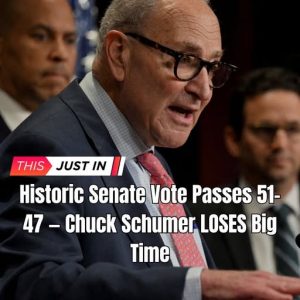The Senate approved three major ambassadorial nominations by Donald Trump, all of whom are wealthy business figures. The nominees include Warren Stephens for the U.K., confirmed 59–39. Also confirmed was Thomas Barrack for Turkey, by a 60–36 vote. And finally, Tilman Fertitta was confirmed as Ambassador to Italy (and concurrently to San Marino) in an 83–14 vote. The batch of confirmations underscores the Trump administration’s continued use of ambassadorial posts for major donors and business allies.
At the same time, the federal government is facing a partial shutdown. The United States Senate and the United States House of Representatives are locked in a dispute over a continuing resolution to fund the government. The House passed a “clean” spending bill (without major new policy riders), but Senate Democrats, led by Chuck Schumer, have blocked it due to concerns over healthcare subsidies and broader spending policy. Republicans argue the shutdown is being lengthened by Democrats’ refusal to accept the House bill; Democrats contend they cannot accept funding without provisions for key programs like subsidies under the Affordable Care Act.
The juxtaposition of luxury ambassador appointments and the ongoing funding standoff has drawn criticism. Observers note the optics of high‑end diplomacy nominations approved even as millions of Americans and federal employees face service disruptions, furloughs or unpaid work. The stalemate reflects deep partisan strategy: Republicans insisting funding must be restored first, while Democrats are using the delay as leverage for programmatic demands. The net effect is a government running at reduced capacity, heightened political charge, and uncertainty over when (or how) normal funding levels will resume.





